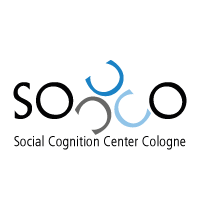
DFG Research Unit FOR 2150 | Phase 2 (2018 - 2022)
Relativity in Social Cognition


Research Unit | Projects

Research Unit | Mercator Fellows
The Research Unit “Relativity in Social Cognition” investigates psychological relativity, with its core mechanism of social comparison and comparative thinking. We believe that relativity impacts social cognition and social behavior independently from specific contents. The Research Unit thereby provides a framework with high integrative potential within and well beyond social psychological research.
Selected Publications
- Schneider, I. K., Stapels, J., Koole, S. L., & Schwarz, N. (in press). Too close to call: Spatial distance between options influences choice difficulty. Journal of Experimental Social Psychology.
- Diel, K., Grelle, S., & Hofmann, W. (in press). A motivational framework of social comparison. Journal of Personality and Social Psychology.
- Fleischmann, A., Lammers, J., Diel, K., Hofmann, W., & Galinsky, A.D. (in press). More threatening and more diagnostic: How moral comparisons differ from social comparison. Journal of Personality and Social Psychology.
- Alves, H., Högden, F., Gast, A., Aust, F., & Unkelbach, C. (in press). Attitudes from mere co-occurrences are guided by differentiation. Journal of Personality and Social Psychology, 119, 560-581.
- Lammers, J., Gast, A., Unkelbach, C., & Galinsky, A. D. (in press). Moral character impression formation depends on the valence homogeneity of the context. Social Psychological and Personality Science.
- Schneider. I. K. & Mattes, A. M. (accepted for publication). The effect of spatial distance between objects on categorization level. Psychonomic Bulletin and Review.
- Genschow, O., Cracco, E., Verbeke, P., Westfal, M., & Crusius, J. (2021). A direct test of the similarity assumption—Focusing on differences as compared with similarities decreases automatic imitation. Cognition, 215, Article 104824.
- Barker, P., Dotsch, R., & Imhoff, R. (2020). Assimilation and contrast in spontaneous comparisons: Heterogeneous effects of standard extremity in facial evaluations. International Review of Social Psychology, 33, 1-11.
- Fleischmann, A., Lammers, J., Conway, P., & Galinsky, A.D. (2020). Kant be compared: People high in social comparison orientation make fewer—not more—deontological decisions in sacrificial dilemmas. Social Psychological and Personality Science.
- Diel, K., & Hofmann, W. (2019). Inspired to perspire: The interplay of social comparison direction and standard extremity in the context of challenging exercising goals. Social Cognition, 37, 247-265.
- Lammers, J. & Baldwin, M. (2018). Past-focused temporal framing overcomes conservatives' resistance to liberal political ideas. Journal of Personality and Social Psychology, 14, 599-619. [data on OSF]
- Baldwin, M., & Lammers, J. (2016). Past-focused environmental comparisons promote pro-environmental outcomes for conservatives. Proceedings of the National Academy of Sciences, 113, 14953-14957.
- Alves*, H., Koch*, A. S., & Unkelbach, C. (2017). Why good is more alike than bad: Processing implications. Trends in Cognitive Sciences, 21, 72–82. * shared first authorship
- Alves, H., Koch, A., & Unkelbach, C. (2017). The "common good" phenomenon: Why similarities are positive and differences are negative. Journal of Experimental Psychology: General, 146, 512–528.
- Baldwin, M., & Lammers, J. (2016). Past-focused environmental comparisons promote proenvironmental outcomes for conservatives. Proceedings of the National Academy of Sciences, 113, 14953–14957.
- Schier, U. K., Ockenfels, A., & Hofmann, W. (2016). Moral values and increasing stakes in a dictator game. Journal of Economic Psychology, 56, 107–115. doi:10.1016/j.joep.2016.06.004
- Schmitt, V., Federspiel, I. G., Eckert, J., Keupp, S., Tschernek, L., Faraut, L., Schuster, R., Michels, C., Sennhenn-Reulen, H., Bugnyar, T., Mussweiler, T., & Fischer, J. (2016). Do monkeys compare themselves to others? Animal Cognition, 19, 417-428.
Contact
Contact

DFG Research Unit FOR 2150
Dr. Daniela Kussberger
Administrative Coordinator
Richard-Strauss-Str. 2
50931 Köln | GERMANY
Telephone +49-221-470-1192
Fax +49-221-470-1216
E-mail d.kussberger(at)verw.uni-koeln.de
Website
